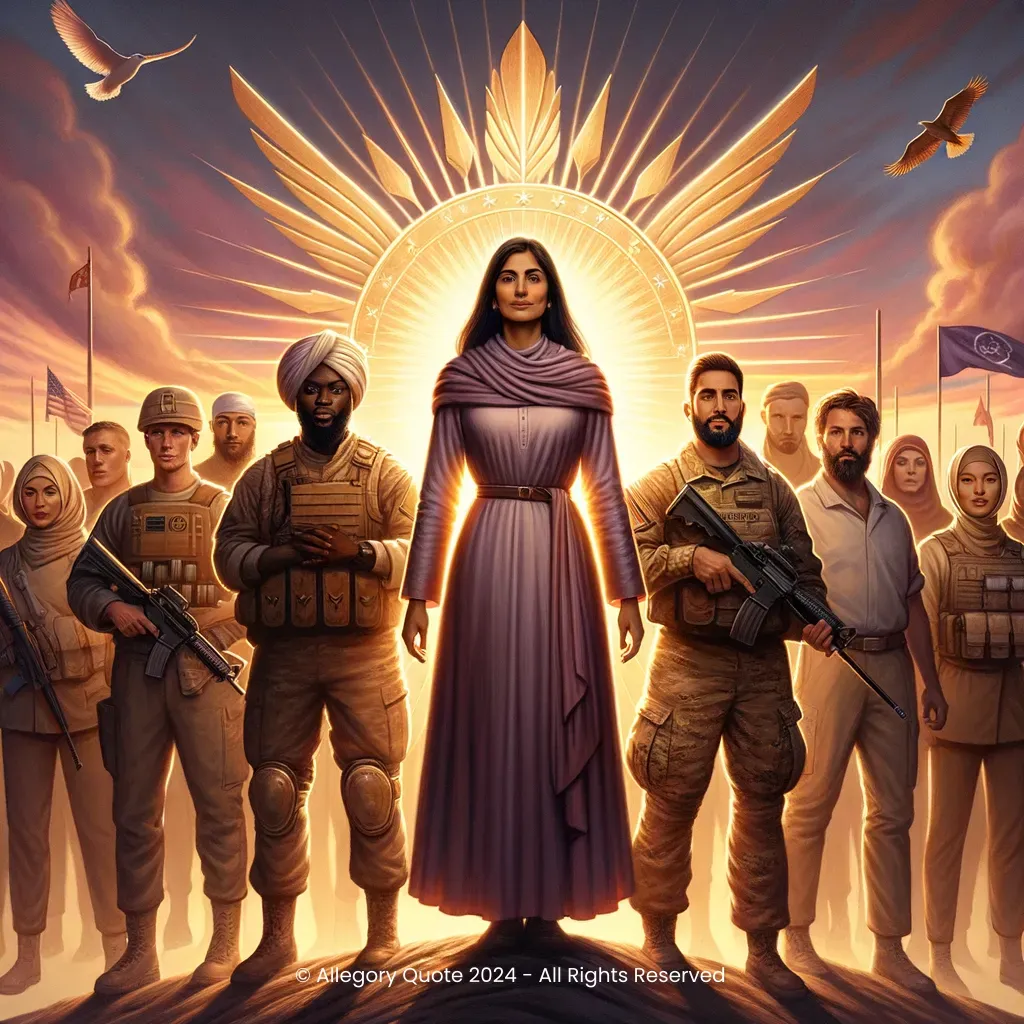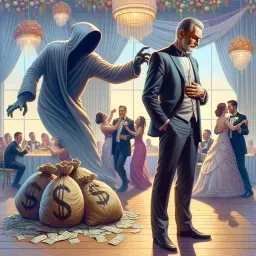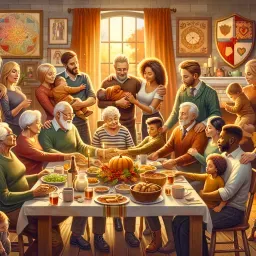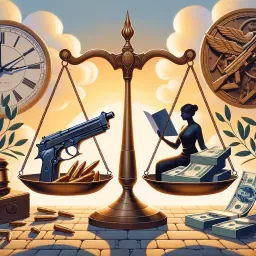”I trust these men with my life, Senator.
To ask them to leave would be an insult“

- Meaning
- The phrase reflects deep trust and loyalty, highlighting the psychological aspect of relying on others for safety and support. It touches on historical concepts of brotherhood and honor among warriors or service members committed to a cause. The philosophical notion here emphasizes that relationships of trust are foundational to society and personal safety.
- Allegory
- The elements in the image reflect the essence of the phrase by showing a leader amidst their trusted companions, symbolizing the bond described in the phrase. The soldiers represent loyalty and strength, while the warm light and sunset symbolize hope and respect between individuals. Together, these elements evoke a sense of security, illustrating the deep trust articulated in the quote.
- Applicability
- Individuals can apply this phrase by fostering trust in their teams or families, acknowledging the value of those they rely on in challenging situations. It encourages appreciation for loyal companions and suggests that expressing gratitude can strengthen these bonds.
- Impact
- The phrase underscores the importance of loyalty and trust in various relationships, often quoted in discussions about military service, leadership, or in contexts advocating for the protection of those who serve. It resonates strongly in cultural dialogues surrounding patriotism and personal sacrifice.
- Historical Context
- The phrase likely emerged in a contemporary context, reflective of modern themes surrounding loyalty, service, and camaraderie, indicating a post-20th century origin during times of military engagement or political discourse.
- Criticisms
- Criticism might arise regarding the extent of loyalty expected from individuals, questioning whether blind trust in anyone, even in service contexts, can lead to detrimental outcomes. Some could argue it promotes an unhealthy reliance on forces that may not always act in the community's best interest.
- Variations
- This phrase's variations might exist in military cultures around the world, where expressions of loyalty differ, such as in the samurai code in Japan or the Chivalric code in medieval European cultures, highlighting strong ethics of loyalty and trust in comradeship across cultures.
-

Michael, we're bigger than U.S. Steel.
-

Fredo, you’re my older brother and I love you. But don’t ever take sides with anyone against the family again.
-

I know it was you, Fredo. You broke my heart.
-

You come into my house on the day my daughter is to be married and you ask me to do murder, for money.
-

You are my older brother, and I love you. But don’t ever take sides with anyone against the family again. Ever.
-

I believe in America. America has made my fortune.
-

You’ve got a friend in me.
-

Some day, and that day may never come, I will call upon you to do a service for me.
-

Finance is a gun. Politics is knowing when to pull the trigger.
-

What’s the matter with you? Is this how you turned out? A Hollywood finocchio that cries like a woman?
-

You never fing mind, man. That’s your fing business.
-

Only a Sith deals in absolutes.
No Comments